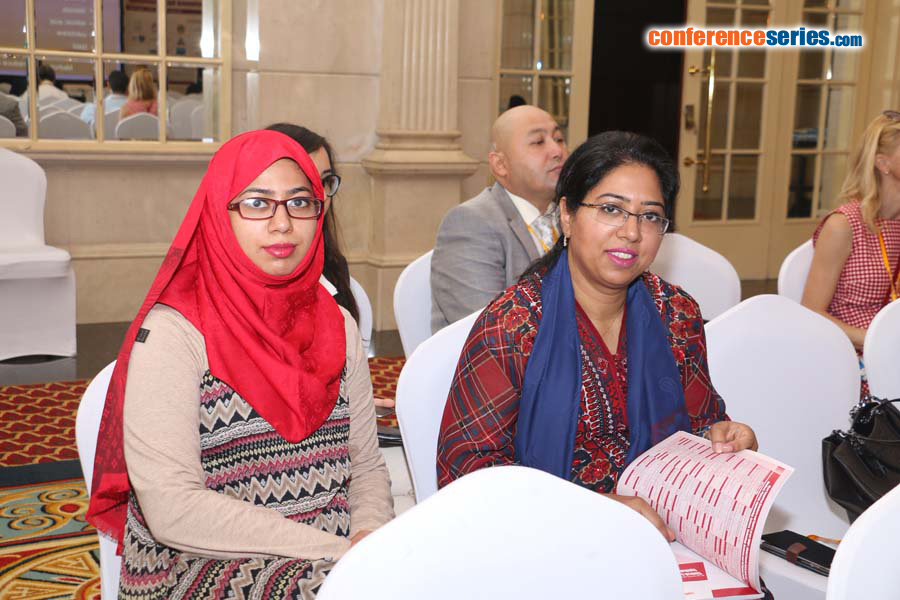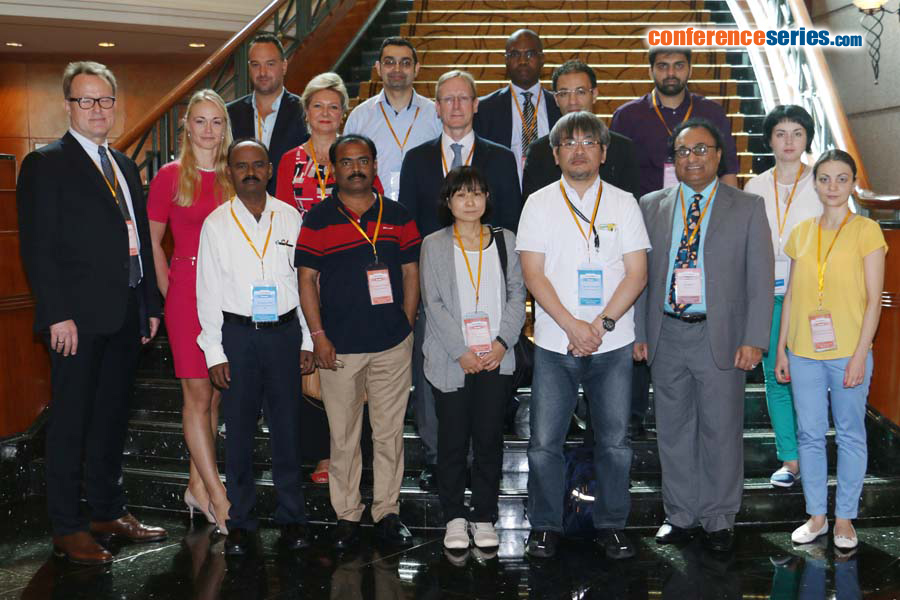
Khushnooda Ramzan
King Faisal Specialist Hospital and Research Centre
KSA
Title: Characterization of the genes underlying Usher Syndrome in Saudi Arabian Population
Biography
Biography: Khushnooda Ramzan
Abstract
Hearing loss is one of the most common sensory disorders in humans with both genetic and environmental etiologies. Genetic causes of hearing loss are extremely heterogeneous and the autosomal recessive inheritance accounts for a substantial part of this disorder. The Usher (USH) syndrome is characterized by congenital sensorineural hearing loss and retinitis pigmentosa (RP). It is the most common form of inherited deaf-blindness with a prevalence of ~ 1/6,000. Three clinical subtypes (USH1-USH3) are defined according to the severity of the hearing impairment, the presence or absence of vestibular dysfunction and the age of onset of RP. So far, ten causative genes have been identified underlying different subtypes of the USH syndrome. Consanguineous families are a powerful resource for genetic linkage studies/homozygosity mapping for recessively inherited disorders. Our study aims to comprehensively delineate the genetic basis and occurrence of USH gene mutations in clinically diagnosed Saudi patients. Whole Genome SNP genotyping coupled with targeted sequencing of the candidate gene was utilized. Our results indicate that in the Saudi Arabian population, MYO7A is the most common gene for USH syndrome. Mutant alleles in other genes (PCDH15, CDH23, USH1C, USH1G, and USH2A) were also identified that provided insight in the molecular basis of USH syndrome in this population. The benefit of this study will hopefully provide the foundation for knowledge and awareness through screening of carrier status, genetic counseling; premarital screening, prenatal and PDG opportunities for multiple family members thereby have a major impact upon early intervention and prevention of hereditary hearing loss.



